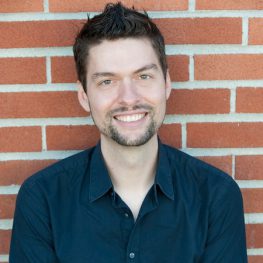Start
8 May 2018 - 12 h 30 min
End
8 May 2018 - 14 h 00 min
Address
30 Avenue Antoine Depage - 1050 Brussels (Room DC8.322 - 8th floor, Building D, Campus Solbosch of the Faculty of Psychology and Educational Sciences - Université Libre de Bruxelles) View mapCategories
Departement SeminarA social network perspective on the extended contact hypothesis
There is ample evidence for the extended contact hypothesis, which argues that knowing that ingroup friends have outgroup friends is sufficient to reduce prejudice. Although extended contact is inherently a social network phenomenon (“a friend of a friend is a friend”), research has thus far not explored the role that social networks play. In this talk, I will introduce an approach to measure extended contact that takes the structure of the underlying social network into account. Extended contact has very different theoretical implications when an ingroup friend’s outgroup friend is unknown (open triads) compared to when there is a direct friendship with the ingroup friend’s outgroup friend (closed triads). Results from a U.S. non-probability sample (N = 313) and from a Dutch random probability sample (N = 818) consistently show that extended contact does not reduce prejudice in open triads where the ingroup friend’s outgroup friend is unknown. This challenges the traditional interpretation of the extended contact hypothesis. I will also present software that I have developed to measure ego-centered social network data and that can be used to gauge the structure of social networks.
***
** Tobias H. Stark is assistant professor at the Department of Interdisciplinary Social Science at Utrecht University and a researcher at the European Research Centre on Migration and Ethnic Relations (ERCOMER). His research focuses on the intersection of racial/ethnic prejudice and intergroup relations in social networks. He studies how prejudices develop within social networks, how prejudices spread through existing social networks, and how prejudices might affect changes in the structure of social networks. Dr. Stark is involved in the development of intervention programs for (primary) schools that use insights from his research to reduce prejudice and improve interethnic relations. He also developed new methods to collect social network data.


